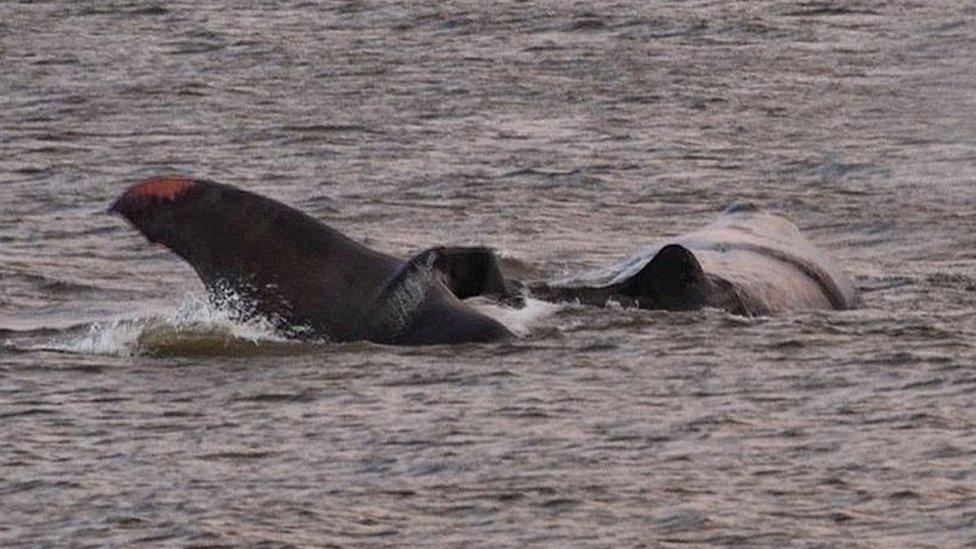Sperm whale deaths: Fifth whale washes up in Lincolnshire
- Published
Sperm whales washed up on the Lincolnshire coast
A fifth sperm whale has washed up on the east coast of England.
It follows the death of a beached whale in Hunstanton, Norfolk, on Friday and the discovery of three carcasses near Skegness over the weekend.
The sperm whales are believed to be from a pod spotted off the Norfolk coast.
The fifth whale was found at Wainfleet, Lincolnshire, on Monday afternoon, the Maritime and Coastguard Agency reported.
It was found on the site of a former bombing range, and warnings have been issued for people to stay away.
The Lincolnshire Wildlife Trust tweeted: "There is no public access to the area and it is extremely dangerous with tidal creeks and the potential for unexploded ordinance. Many of the lanes to the marshes are private and not accessible."
Why do sperm whales wash up on beaches?
Marine biologists were using a probe to examine one of the Skegness whales earlier on Monday when there was a "huge blast of air", said BBC reporter David Sykes.
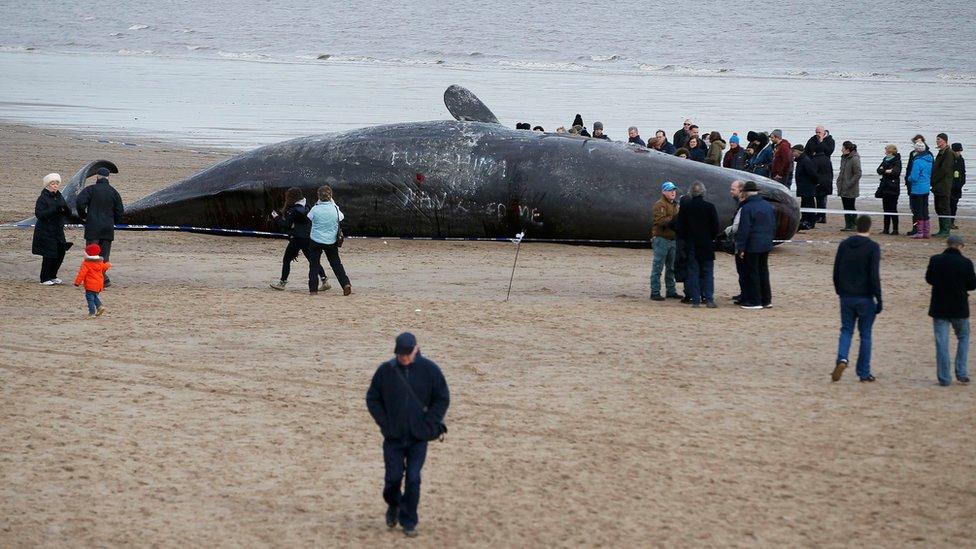
People crowded round while scientists examined one of the whales
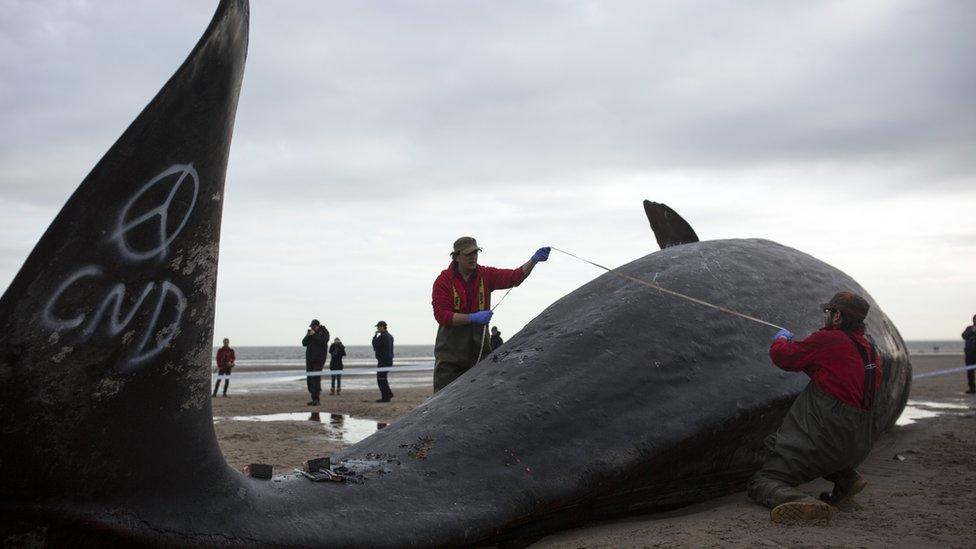
One of the whales had the letters CND spray-painted on its tail
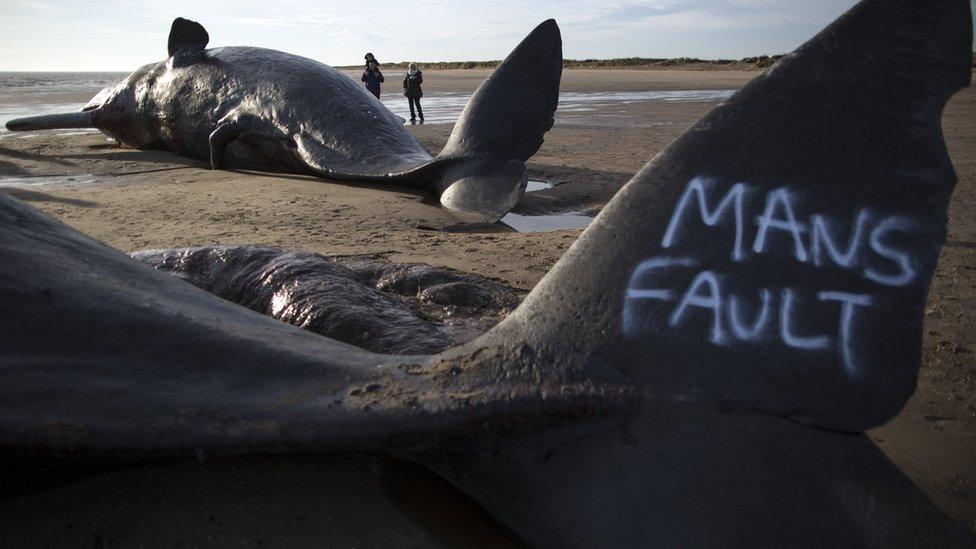
Another was daubed with the words "mans fault"
The letters CND had also been spray-painted by someone on the whale's tail.
CND (Campaign for Nuclear Disarmament) said the action was not carried out by the organisation at a national level.
The word "fukushima" - presumably a reference to the stricken Japanese nuclear power station - was also written on the side of the whale's body.
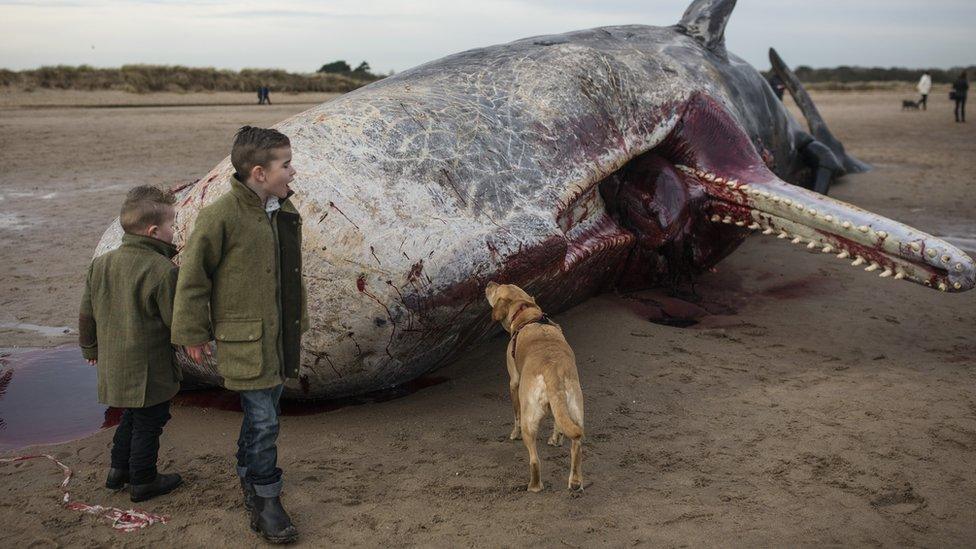
People are being advised not to get too close to the dead whales
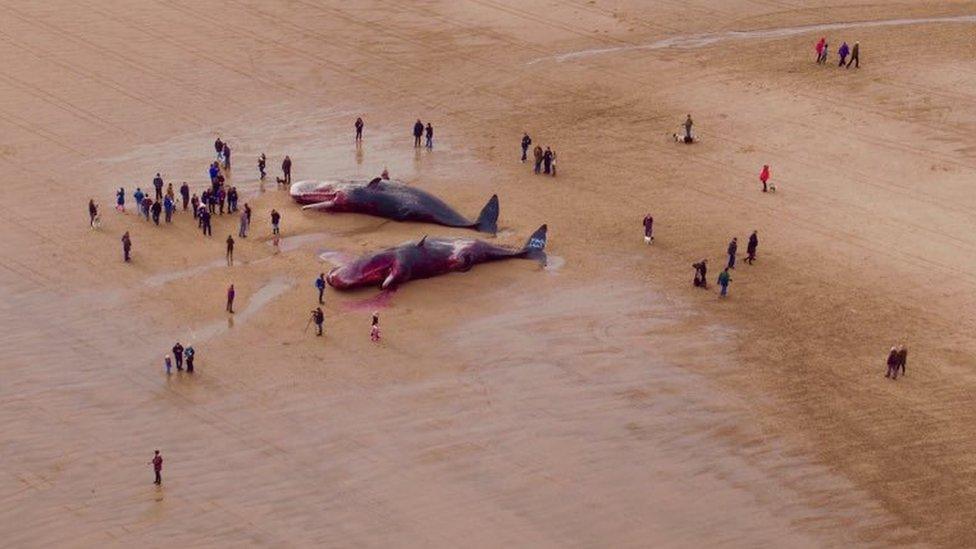
The two other whales were found at Gibraltar Point

What happens now?
A decomposing whale can be a public health risk and the local council will have to dispose of the bodies
In some cases they can be left to rot naturally or buried
East Lindsey District Council estimated that a beached sperm whale in 2012 cost it about £10,000 to dispose of
Many are taken to landfill sites while others are disposed of through incineration or rendering

One of the Skegness whales is at the end of Lagoon Walk, with the other two towards Gibraltar Point.
They have been cordoned off to prevent crowds of people touching the carcasses.
People are also being prevented from going too close to the Hunstanton whale.
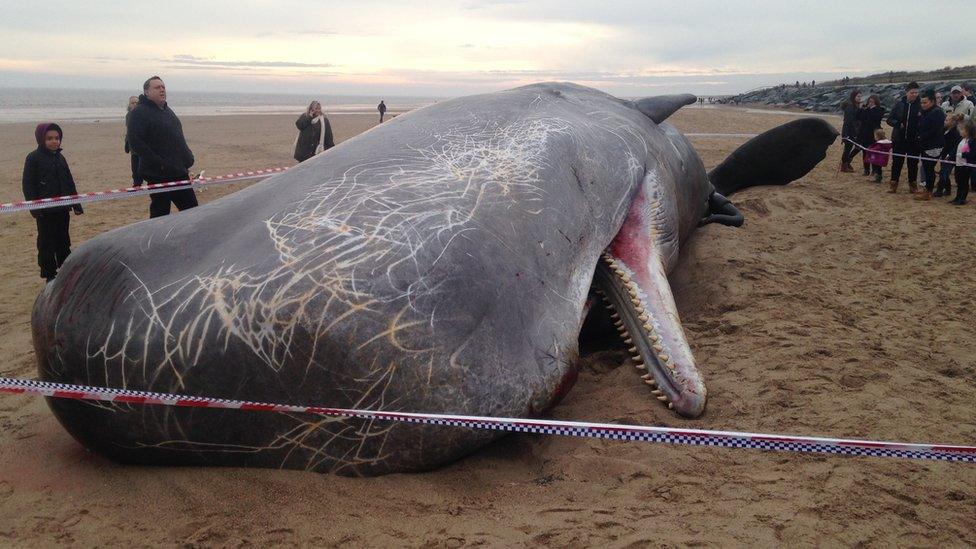
Many people have gathered to view the whales
- Published25 January 2016
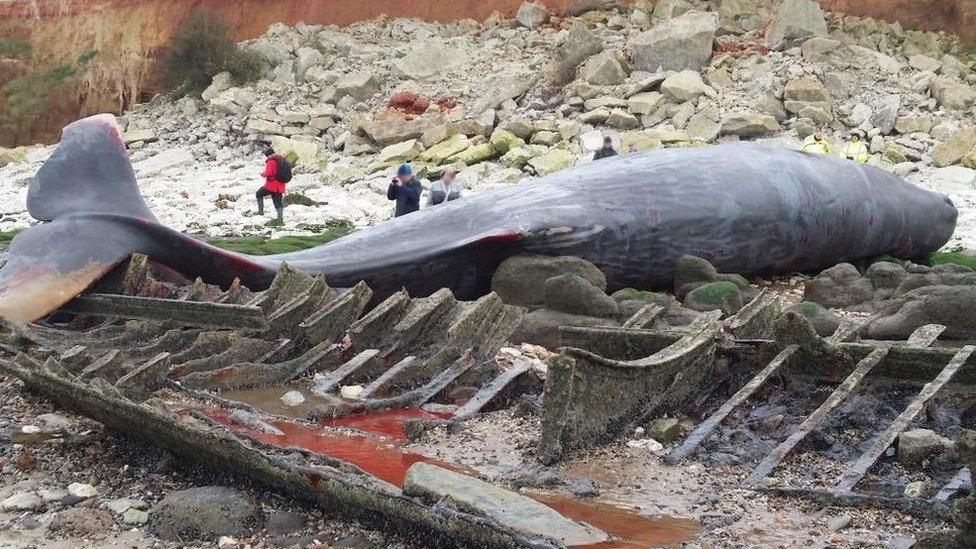
- Published25 January 2016
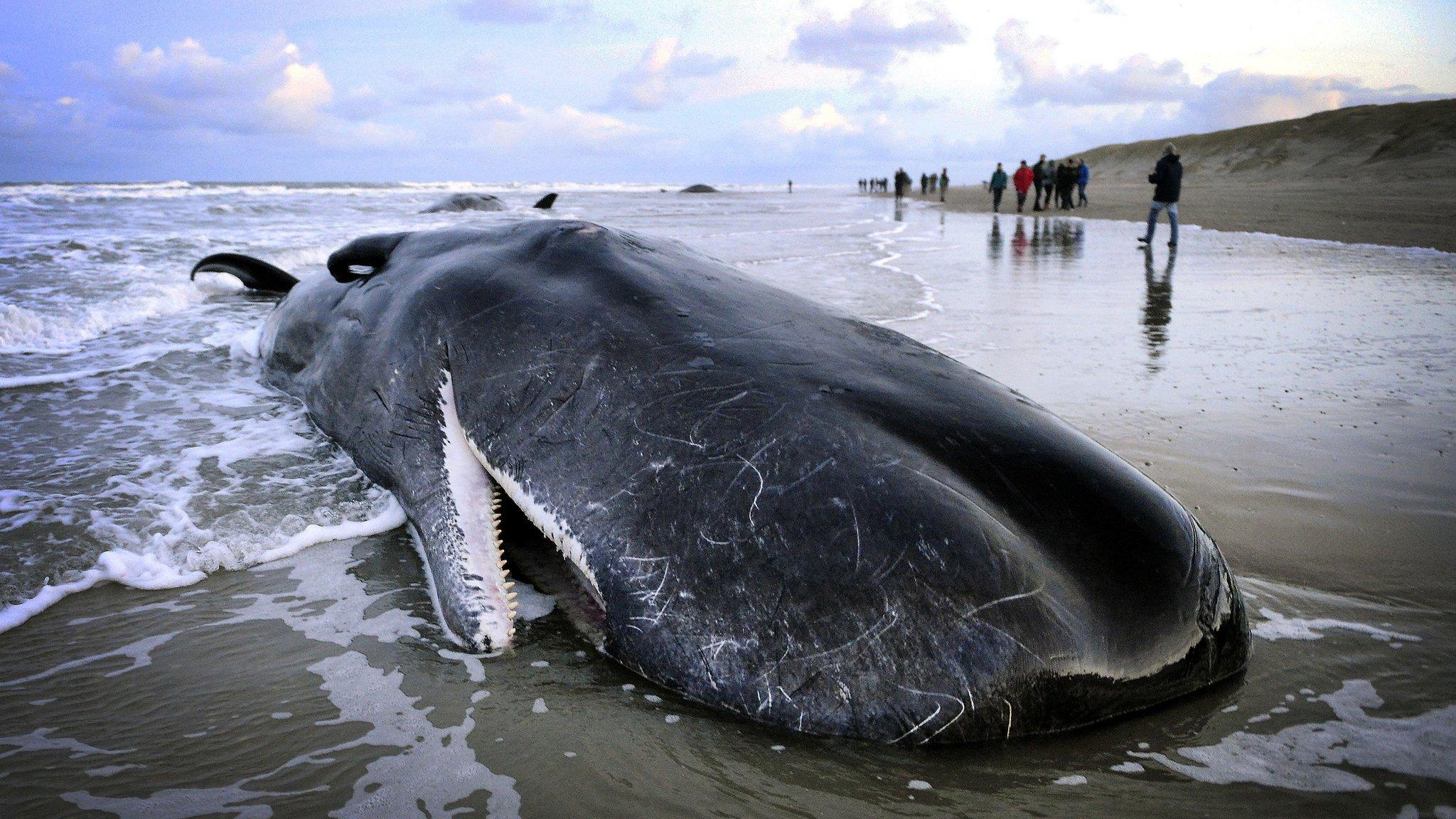
- Published8 March 2012

- Published24 January 2016
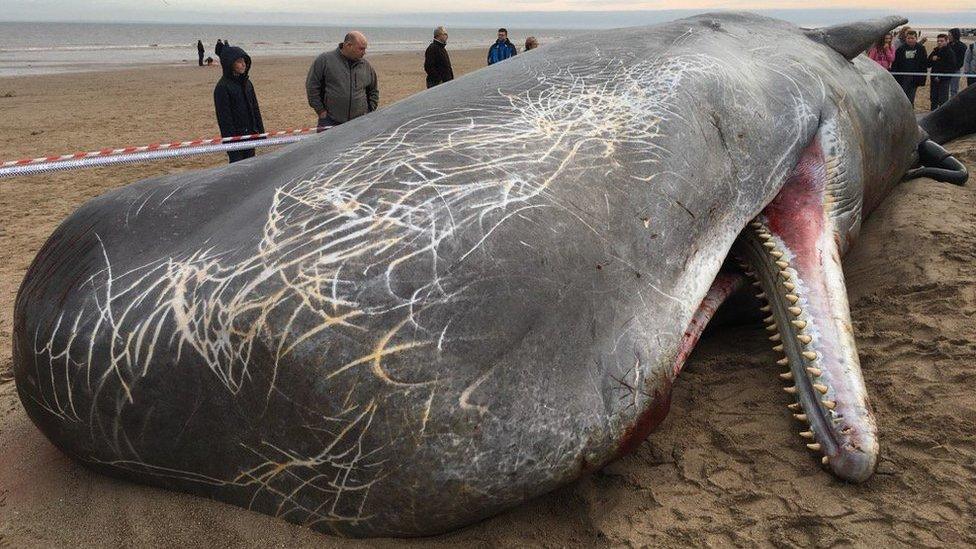
- Published23 January 2016
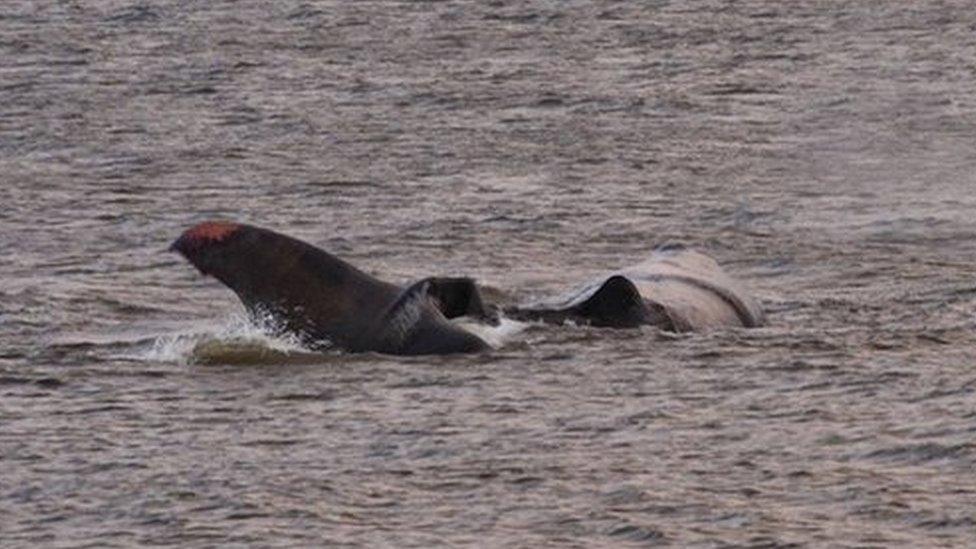
- Published22 January 2016
